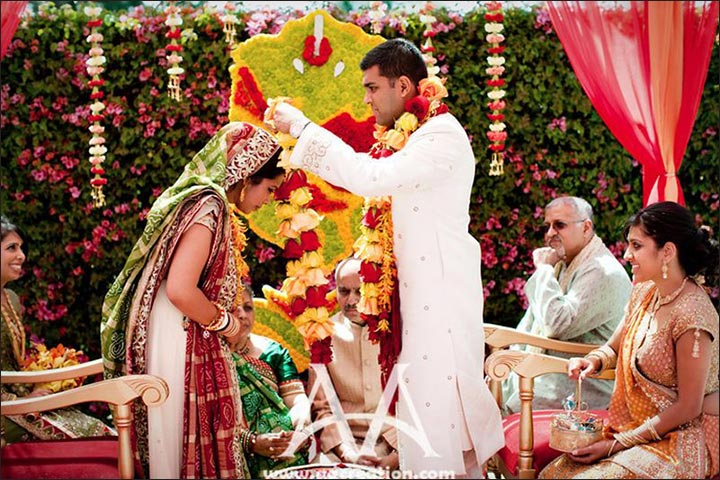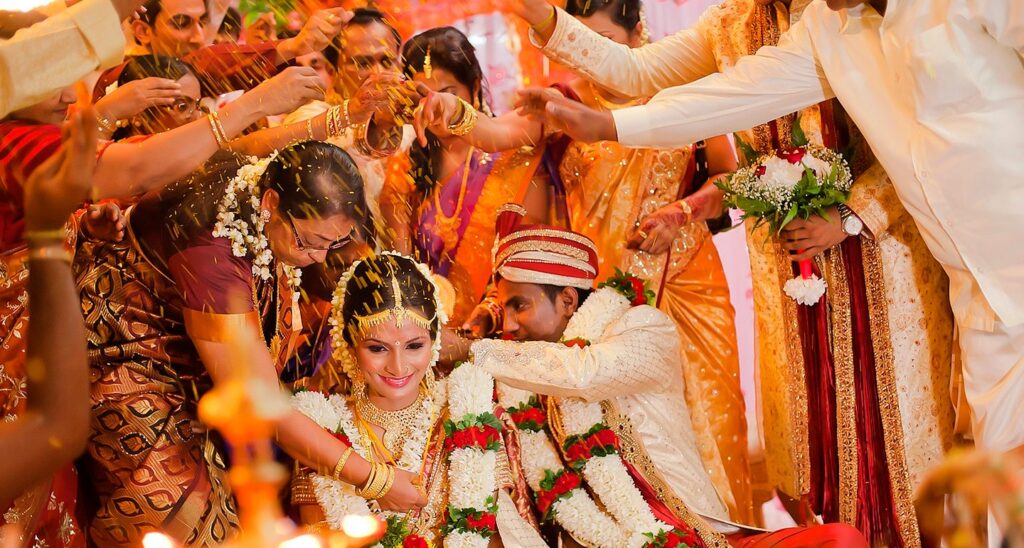Hindu Court Marriage
e-marriages currently recognized as a legal form of marriage in India, including Hindu court marriage. The Special Marriage Act, 1954, which governs court marriages, requires the physical presence of both parties, witnesses, and the Marriage Registrar during the registration process.
Hindu court marriage
In India, Hindu court marriage is a legally recognized way for couples to get married. Here are the steps involved in getting a Hindu court marriage:
Eligibility: Both parties must be at least 21 years old for the groom and 18 years old for the bride. Both parties must also be mentally and physically fit for marriage.
Notice of Intended Marriage: The couple must give notice of their intention to marry to the Marriage Registrar of the district where either the bride or groom has lived for at least six months. The notice must be given at least 30 days prior to the wedding date.
Documentation: The couple must provide the following documents to the Marriage Registrar:
- Application form for marriage registration
- Address proof of both parties (e.g., Aadhaar card, passport, voter ID card)
- Age proof of both parties (e.g., birth certificate, school leaving certificate)
- Two passport-sized photographs of both parties
- Proof of divorce or death certificate of spouse (if applicable)
Witnesses: The couple must bring two witnesses who are over 18 years of age and have valid ID proof.
Marriage Registration: On the wedding day, the couple and their witnesses will go to the Marriage Registrar’s office. The Registrar will check all documents and then the couple will sign the marriage certificate in the presence of the Registrar and their witnesses.
Marriage Certificate: After the signing of the marriage certificate, the Registrar will issue a marriage certificate to the couple.
It is important to note that the requirements and procedures for Hindu court marriage may vary depending on the state in which the couple is getting married. Additionally, it is advisable to consult with a lawyer or legal expert to ensure that all requirements and procedures are followed correctly.
Overall, getting a Hindu court marriage is a relatively straightforward process as long as the couple meets the eligibility criteria and provides all required documents to the Marriage Registrar.


Requirment Hindu court marriage
Age: The bride must be at least 18 years old and the groom must be at least 21 years old.
Mental and Physical Fitness: Both parties must be mentally and physically fit to enter into a marriage.
Valid Identity and Address Proof: Both parties must provide valid identity and address proof, such as a passport, Aadhaar card, voter ID card, or driving license.
Witness: Both parties must have at least one witness present during the wedding ceremony.
Divorce Decree or Death Certificate: If either party has been previously married, they must provide a divorce decree or death certificate of their former spouse.
Notice of Intended Marriage: The couple must give notice of their intention to marry to the Marriage Registrar of the district where either the bride or groom has lived for at least six months. The notice must be given at least 30 days prior to the wedding date.
It is important to note that the requirements for Hindu court marriage may vary depending on the state in which the couple is getting married. Some states may require additional documents or have different procedures. It is advisable to consult with a lawyer or legal expert to ensure that all requirements are met.
In addition to the above requirements, the couple must also provide two passport-sized photographs of themselves and pay the required fee for marriage registration. The Marriage Registrar will verify the documents and eligibility of both parties, publish the notice of intended marriage, and issue a certificate of no objection if there are no objections to the marriage during the 30-day period.
In conclusion, the requirements for a Hindu court marriage in India include age, mental and physical fitness, valid identity and address proof, witnesses, divorce decree or death certificate (if applicable), and notice of intended marriage. It is advisable to consult with a lawyer or legal expert to ensure that all requirements are met and to comply with the legal procedures for court marriage in India.
Process of Christian court marriage
Notice of Intended Marriage: The couple must give notice of their intention to marry to the Marriage Registrar of the district where either the bride or groom has lived for at least six months. The notice must be given at least 30 days prior to the wedding date.
Verification of Documents: The couple must provide the following documents to the Marriage Registrar:
- Application form for marriage registration
- Address proof of both parties (e.g., Aadhaar card, passport, voter ID card)
- Age proof of both parties (e.g., birth certificate, school leaving certificate)
- Two passport-sized photographs of both parties
- Proof of divorce or death certificate of spouse (if applicable)
Verification of Eligibility: The Marriage Registrar will verify the eligibility of both parties for marriage, including their age, marital status, and mental and physical fitness.
Publication of Notice: The Marriage Registrar will publish the notice of the intended marriage in the office of the Marriage Registrar and on the official website of the state government for 30 days.
Objections: If there are no objections to the marriage during the 30-day period, the Marriage Registrar will issue a certificate of no objection.
Marriage Registration: On the wedding day, the couple and their witnesses will go to the Marriage Registrar’s office. The Registrar will check all documents and then the couple will sign the marriage certificate in the presence of the Registrar and their witnesses.
Marriage Certificate: After the signing of the marriage certificate, the Registrar will issue a marriage certificate to the couple.
It is important to note that the requirements and procedures for Hindu court marriage may vary depending on the state in which the couple is getting married. Some states may require additional documents or have different procedures. It is advisable to consult with a lawyer or legal expert to ensure that all requirements and procedures are followed correctly.
Hindu marriages in court may include:
Hindu Marriage Act: The Hindu Marriage Act, 1955 is the primary law that governs Hindu marriages in India. It lays down the legal framework for Hindu marriages, including the requirements for a valid marriage, the rights and obligations of spouses, and the grounds for divorce.
Eligibility: The eligibility criteria for a Hindu court marriage may include age, mental and physical fitness, valid identity and address proof, witnesses, divorce decree or death certificate (if applicable), and notice of intended marriage. It is important to ensure that all legal requirements are met in order for the marriage to be recognized as legal.
Procedure: The procedure for a Hindu court marriage may include giving notice of the intended marriage to the Marriage Registrar, verification of documents and eligibility of both parties, publication of the notice of intended marriage, and issue of a certificate of no objection. The wedding ceremony must be conducted in the presence of the Marriage Registrar and witnesses.
Documents Required: The documents required for a Hindu court marriage may include a valid identity and address proof, passport-sized photographs, and the divorce decree or death certificate of a former spouse (if applicable).
Registration and Certificate: After the wedding ceremony, the Marriage Registrar issues a certificate of marriage, which serves as legal proof of marriage. It is important to ensure that the marriage is registered with the appropriate authorities in order to avail of legal benefits.
In conclusion, the main titles in Hindu marriages in court include the Hindu Marriage Act, eligibility criteria, procedure, documents required, and registration and certificate. It is important to comply with the legal requirements and procedures for a Hindu court marriage in order for the marriage to be recognized as legal in India. It is advisable to consult with a lawyer or legal expert to ensure that all requirements are met.